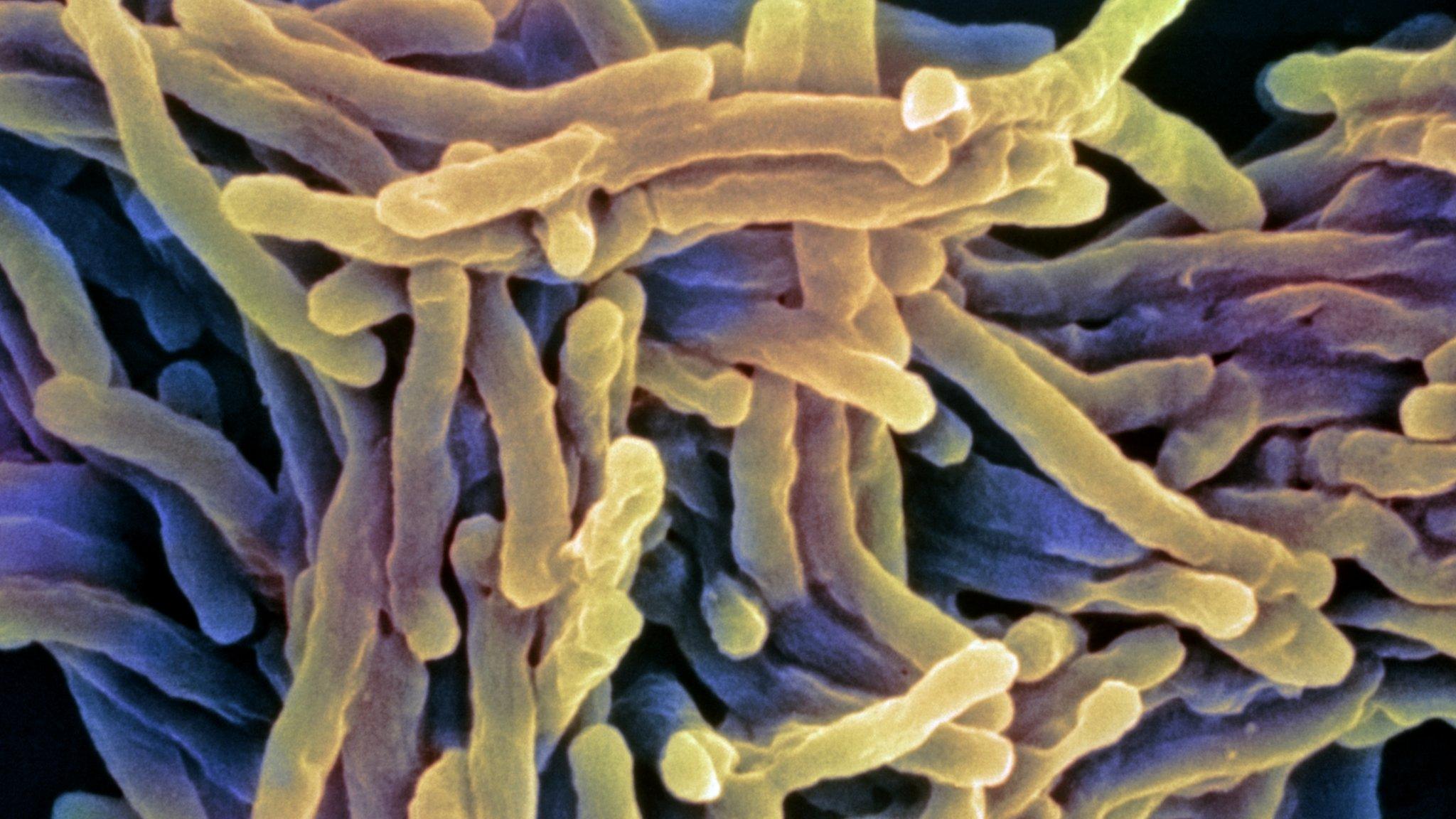Global resistance to TB drugs is 'ticking time bomb'
- Published
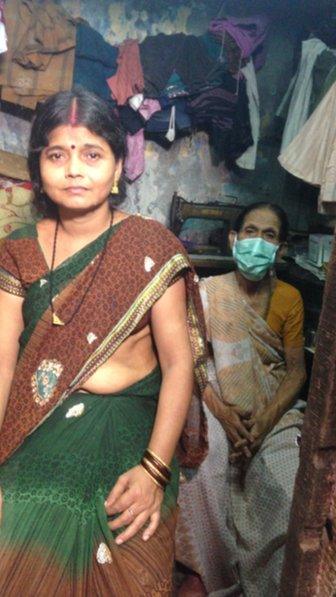
Ranjhu Zha and her family share a 2 sq m home
Increasing resistance to tuberculosis drugs around the world is a "ticking time bomb", says the World Health Organization (WHO).
It estimates almost 500,000 people around the world have a type of TB which is resistant to at least two of the main types of drugs used to treat the disease.
But most are not diagnosed and are walking around spreading these more deadly strains.
More than half the cases are in China, Russia and India.
The WHO says the overall number of people developing the disease is falling, but 8.6 million people were diagnosed with TB last year, and more than a million people died from the disease.
Through the hot, winding, cramped streets of Mumbai's sprawling Dharavi slum, we have come to meet Ranjhu Zha and her family.
The family of five is crammed into a space no more than about 2 sq m.
Ranjhu sits with her son and mother on the floor.
Her mother Parvati is wearing a surgical mask.
She has what is known as an extensively drug-resistant form of TB (XDR-TB).
It is not responding to most of the main drugs used to treat the disease.
She caught the disease from her 23-year-old grand-daughter Bharati, who died of TB in June.
She was resistant to two of the main drugs used to treat the condition.
"My daughter was as beautiful as a flower," says Ranjhu.
"But slowly, slowly she wasted away. I remember her always.
"But what is the point in thinking about someone who is no more? She is never coming back."
Tuberculosis is an airborne disease. It's very contagious and can spread from person to person by breathing in an infected person's germs.
The cramped conditions in places like the Dharavi slum create the perfect environment for the fast spread of TB and other diseases.
People are living cheek by jowl and there's not much ventilation.
Ranjhu says her daughter wasn't given the full course of treatment when she first developed TB, and that made her resistant to the two main types of TB drugs.
Ranjhu's mother is now getting treatment from the medical charity Medecins Sans Frontieres.
She says she has not been able to get the right drugs from government schemes.
Rampant misuse of antibiotics
Her treatment includes painful injections every day and will last around two years.
MSF says her treatment costs somewhere in the region of $10,000 (£6,000). Standard TB treatment costs around $50.
"There are several drugs used to treat TB," says Lorraine Rebello, medical services manager at the MSF TB and HIV clinic in Mumbai.
"But when two of the primary drugs that are essential to treating TB - rifampicin and isoniazid - are no longer killing the TB bacteria, then the patient has drug-resistant TB."
The Indian government's Revised National TB Control Program aims to provide free TB treatment to every tuberculosis patient in the country.
But the WHO says out of the estimated 64,000 drug-resistant cases in India in 2012, only 16,588 were diagnosed.
Lorraine Rebello puts the rise in cases she has seen down to a number of factors.
"We have a huge unregulated private sector," she says.
"We have doctors who are not properly medically qualified, like Ayurvedic doctors who are treating drug-resistant TB.
"They probably don't have the knowledge to treat the condition, but they prescribe a cocktail of drugs.
"Some patients are even going to pharmacies without prescription and buying drugs over the counter. So we are seeing a rampant misuse of antibiotics."
Dr Mario Raviglione, director of the WHO's Global TB programme, describes the situation as a public health crisis.
"What could happen is progressively multi-drug resistant TB takes over from normal tuberculosis.
"If this happens not only would millions of patients potentially die of this form of TB, but if I look at it from an economic perspective the cost of dealing with millions of potential cases is enormous."
He describes the fact that 80% of multi-drug resistant TB cases around the world are not being treated as a "ticking time bomb".
"Killing you slowly"
Dr Ruth Mcnerny, senior lecturer at the London School of Tropical Medicine, who works with TB charity TB Alert, says: "We're just silently watching this epidemic unfold and spread before our eyes.
"TB is very clever because it kills you very slowly. And while it's killing you very slowly you're walking around spreading it.
"The issue of TB is if you get someone on treatment, they'll become non-infectious quite quickly.
"But if the treatment's not working because it is a drug-resistant strain, then they stay infected and they stay spreading drug-resistant TB.
"The treatment for drug-resistant TB is very, very difficult and at some stage it becomes impossible."
In India, the government says it is doing all it can to improve diagnoses and treatment.
Hanmant Chauhan heads the TB programme for the state of Maharashtra.
He says around 8,000 multi-drug resistant TB patients have been treated in the last three years.
"We are taking every step so that every TB affected person gets treatment as soon as possible," he says.
"We are also trying to see that the disease doesn't spread. We are trying to make people aware about the precautions and treatment, so that the patients get the treatment and TB gets eradicated soon."
Back in Ranjhu's slum her 16-year-old son Santosh is studying for exams.
He sleeps on the floor of his tiny home with his infected grandmother and three other relatives.
He knows he is at high risk of catching this particularly deadly form of TB.
"I do feel scared but what can we do, we only have this one place to stay all together," he says.
"If she removes the mask which makes her so uncomfortable because it is so hot and stuffy here, there is always a danger we will also catch the disease."
- Published19 November 2015
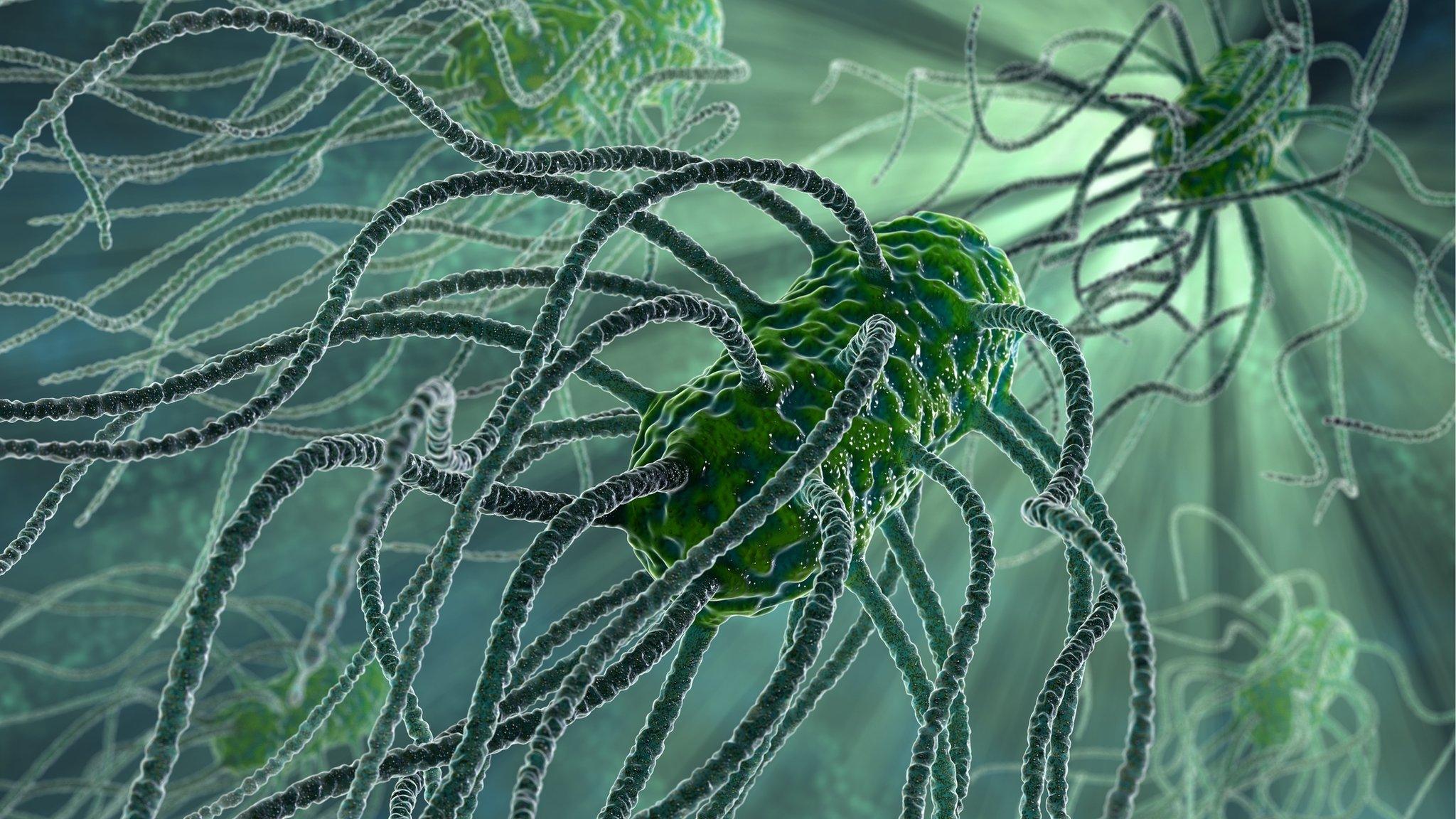
- Published23 October 2013
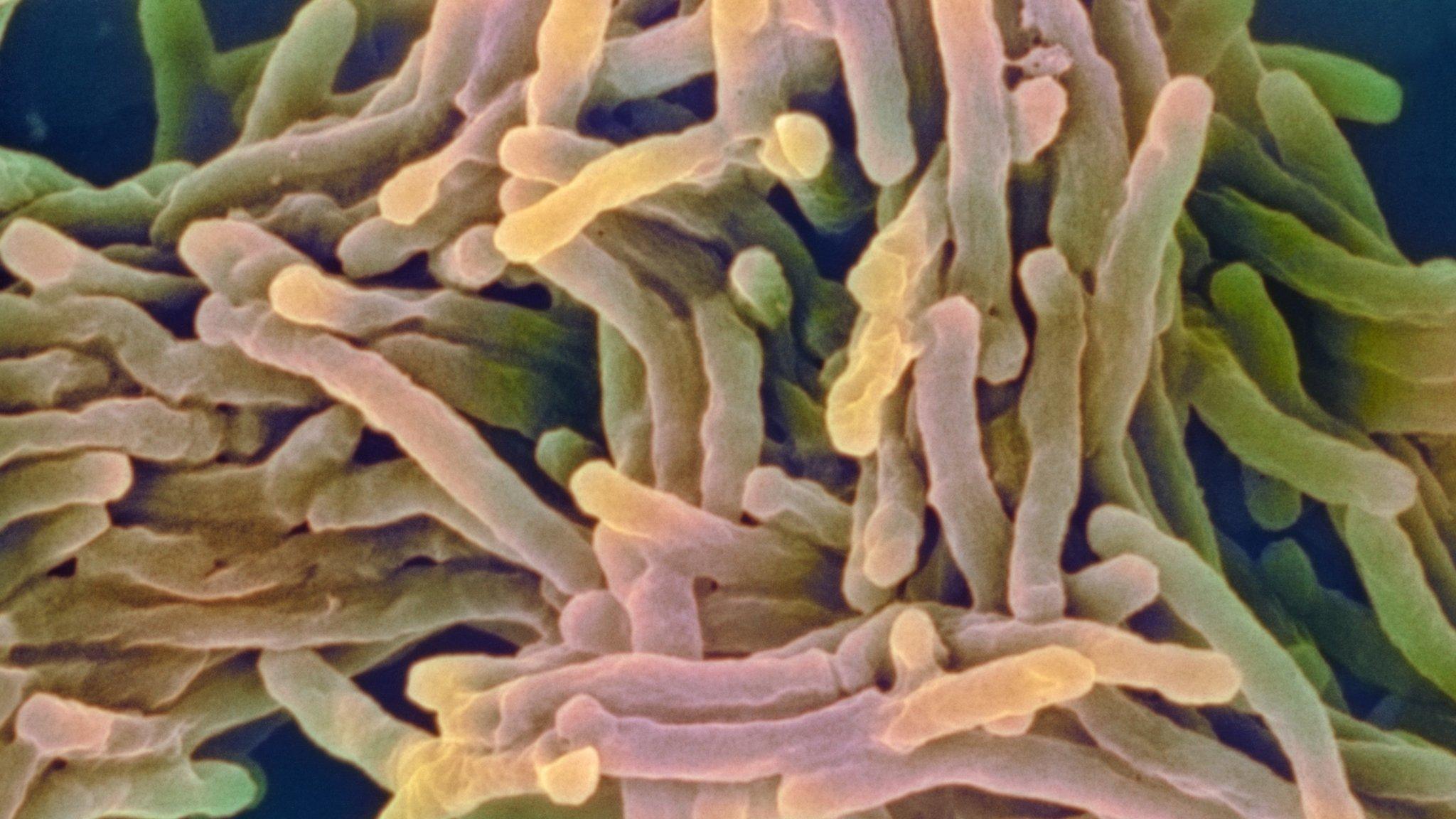
- Published23 March 2013

- Published2 September 2013
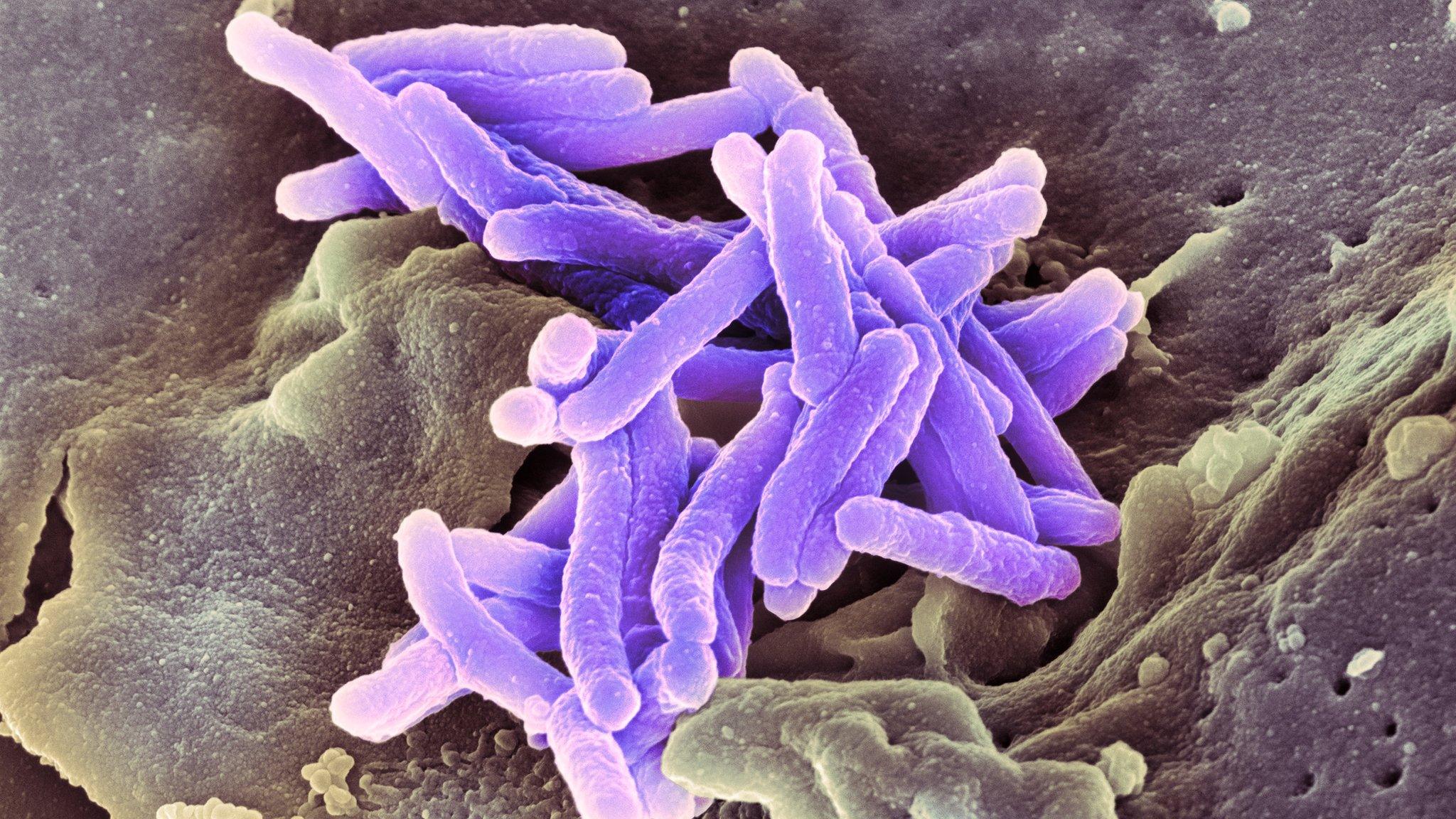
- Published17 October 2012
